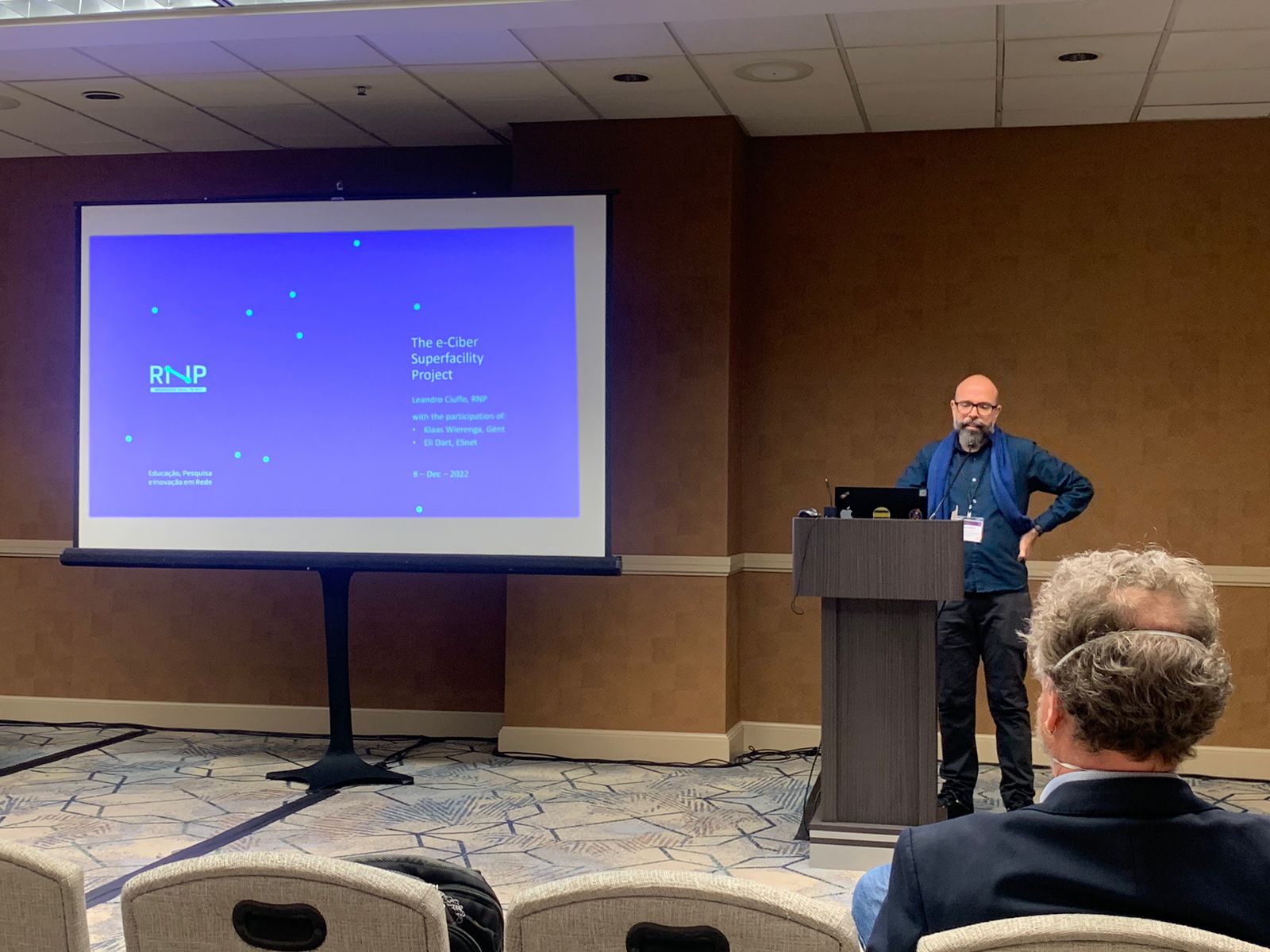eCiber project promises more speed and security in transferring large volumes of academic data
Started in April 2022, the eCiber project provides for the construction of a high-performance network with differentiated services and security policies tailored for scientific applications. The initiative became viable after renewing RNP's backbone, which now has the possibility of deploying multiple 100Gbps channels. In this way, the project will be able to offer connectivity with guaranteed bandwidth and a better user experience.
Another motivation for the project is the growing interdependence between academic networks (NRENs) and large research centers that work with e-Science and high-performance computing (HPC). “We believe that this new structure will be able to benefit, especially, the large Brazilian research centers that work with 'big science', that is, they have advanced requirements for processing, analysis, transmission and storage of large volumes of data. These centers need to be served with differentiated policies and services, unlike those currently offered to institutions that operate in the long tail of science”, says Marcos Schwarz, who presented the project at the 3rd Global Research Platform Workshop (GRP) event, held in October of this year, in Salt Lake City (USA).
Additionally, in addition to offering connectivity solutions (with 100Gbps or even 400Gbps connections), the project intends to work on discovering and structuring new services that speed up and facilitate the research process. “We also want to deliver more value to the institutions' cyber security”, says RNP's R&DI manager.
There are successful experiences in the world (in regions such as Europe, USA and South Korea) of closer relations between research infrastructures, including supercomputing centers and academic networks, ranging from joint training and support actions to participation of HPC centers in the governance structure of NRENs and integrated investment planning.
“This integrated action between research infrastructures and academic networks was enhanced by the advance in connection speeds, creating the concept of 'Superfacility'. With the eCiber project, we want to encourage and experiment with this model in Brazil”, comments Leandro Ciuffo, deputy director for e-Science and Advanced Cyberinfrastructure, who also presented the project in the USA, at the event 'Internet2 Technology Exchange meeting', held on December 8. The creation of a collaboration and sharing network between organizations participating in eCiber, in order to ensure greater readiness and predictability in the use of high-performance computing resources, is identified as one of the main benefits of the project.
The eCiber project is organized in layers, ranging from updating the network infrastructure (backbone, last mile and campus network) to discovering new services for optimizing scientific workflows. The National Laboratory for Scientific Computing (LNCC) and SENAI-CIMATEC will be the first institutions to have their network infrastructure updated. Meanwhile, Embrapa and the Brazilian Geological Survey of the Mineral Resources Research Company (SGB-CPRM) are the first institutions to participate in service discovery actions.

